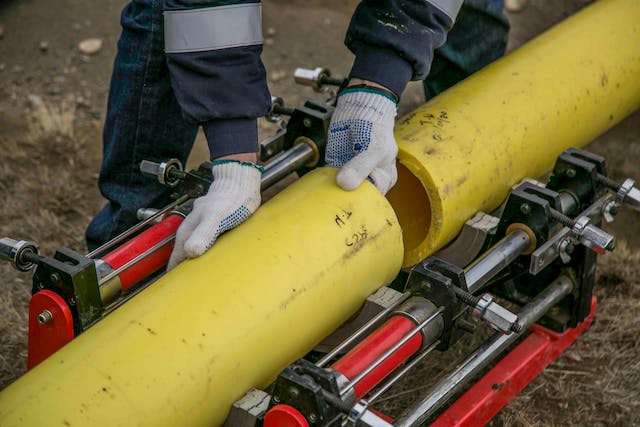If a toilet backs up with dirty water or your yard has wet spots that won’t dry after rain, this could be a telltale sign of a sewer line leak.
Sewer line leaks can lead to significant issues, but they aren’t always easy to spot. If you need help identifying a sewer line leak, keep an eye out for the signs listed below.
For top-notch leak detection services, consider checking out Full Speed Plumbing.
1. Foul odors
The odor of foul sewage can be one of the most apparent indicators that your sewer line needs attention, mainly if it emanates from multiple drains and cannot be resolved through standard methods such as drain cleaning and clearing out.
Hydrogen sulfide gas released when waste and debris flow through pipes contributes to this rotten, unpleasant stench of sewage odor.
Gases from malfunctioning sewer lines can enter your home through vents, crevices, and other plumbing system components, causing your family’s air to smell bad and make it uncomfortable to breathe.
Furthermore, this issue could potentially lead to other problems like water issues and mold growth – so if this issue arises, it is essential that a plumber be called immediately.
2. High water bills
The sewer line is the primary path that transports wastewater and sewage from your home to a municipal sewage treatment plant via drain lines attached to toilets, showers, and sinks. Any damage to this main pipe could allow waste into your home and create serious health concerns.
Unclogging or leaky sewer pipes is another cause of sky-high water bills. A major problem with the sewer line may be indicated if your meter continues to tick even when no plumbing fixtures are in use.
If there hasn’t been any rain recently, leaks in sewer pipes might lead to moisture building up beneath your house and wet patches or puddles in your yard. Puddles may smell of sewage and appear dark in color – if this occurs, contact a professional as soon as possible to address it.
3. Mold and mildew
Mildew and mold can be an unwelcome house guest, but when combined with the smell of sewer gas, it may indicate an issue in your sewer line. Mildew and mold both thrive in humid environments where sewage leaks into our environment, just like its precursor sewage.
Mold spores spread quickly within those environments, causing health issues like sore throats, headaches, and breathing difficulties.
Mildew spores tend to grow slower and be more localized than their mold counterparts, yet still pose a health risk when inhaled. If any areas in your home appear susceptible to mildew growth, it’s wise to have them professionally cleaned as soon as possible.
Leaks in sewer lines can attract rodents and other pests attracted by moisture and the foul odor produced by wastewater treatment plants.
4. Blocked drains
If your drains are experiencing multiple blockages throughout your home, such as showers, sinks, toilets, and washing machines – especially at once or due to objects like toys, paper towels, and sanitary products being flushed down – it could indicate there’s something amiss with your sewer line.
An unexpected drop in water pressure could be an early warning sign that your sewer lines have begun leaking. If this happens, it’s crucial to contact a plumber promptly for swift action.
5. Cracked foundation
Your home’s plumbing pipes deliver water and waste directly into a sewer line. Therefore, this line must be monitored closely, as any leakage or blockage could have disastrous repercussions for your entire household.
An audible gurgling noise coming from the basement could be an early indicator of a sewer leakage issue. If your yard suddenly becomes verdant and lush without explanation, this could be an indicator of a leaky sewer line. Sewage from this source seeps into the soil, making it harder for your foundation to settle firmly.
Related Posts












